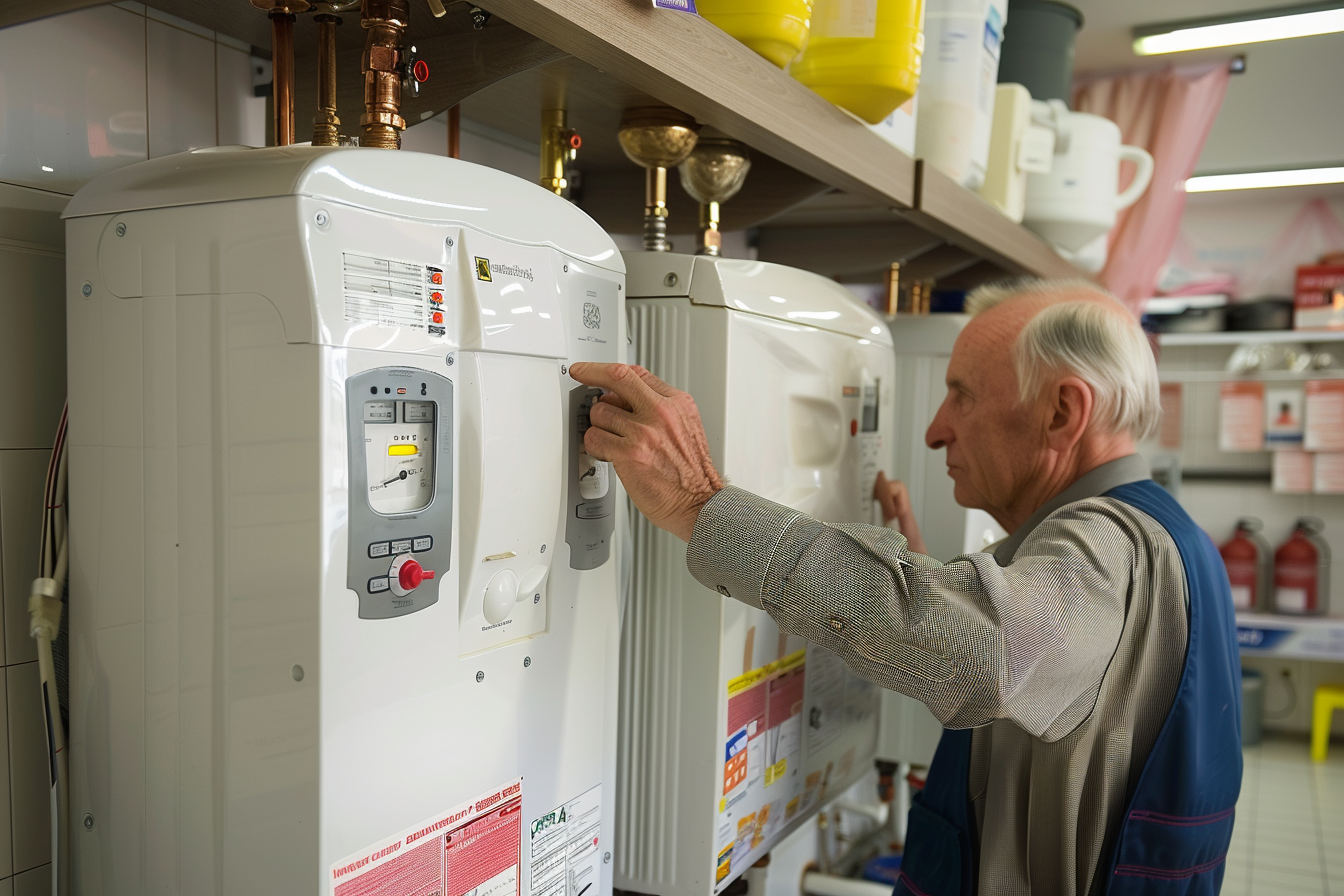Common boiler problems and effective repair solutions
Boilers are essential for maintaining comfort in homes and businesses, especially during colder months. However, like any mechanical system, they can develop issues that affect their performance and efficiency. Understanding the most frequent boiler problems and knowing how to address them can save you time, money, and frustration. This guide explores typical boiler malfunctions, warning signs to watch for, and practical repair solutions to keep your heating system running smoothly throughout the year.

When a boiler malfunctions, it can disrupt daily routines and create uncomfortable living or working conditions. Recognizing common issues early and understanding appropriate repair approaches helps homeowners and facility managers maintain reliable heating systems. From minor inconveniences to serious safety concerns, boiler problems vary in complexity and urgency, making it essential to know when professional intervention is necessary and what solutions are most effective for different situations.
Identifying signs of a faulty boiler needing repair
Recognizing early warning signs of boiler trouble can prevent minor issues from escalating into costly failures. One of the most obvious indicators is unusual noises, such as banging, whistling, or gurgling sounds, which often signal trapped air, low water pressure, or limescale buildup within the system. These sounds should never be ignored, as they typically indicate underlying mechanical or circulation problems.
Another critical sign is inconsistent heating or hot water supply. If radiators remain cold despite the boiler running, or if hot water becomes intermittent or fails to reach desired temperatures, internal components may be malfunctioning. Leaking water around the boiler unit is another serious warning sign that demands immediate attention, as it can indicate seal deterioration, pressure valve issues, or internal corrosion.
Visible changes in flame color also warrant concern. A healthy boiler flame should burn blue, while a yellow or orange flame suggests incomplete combustion and potential carbon monoxide production, creating a dangerous safety hazard. Additionally, sudden increases in energy bills without corresponding usage changes often indicate reduced boiler efficiency, signaling that maintenance or repairs are overdue.
Common boiler problems and effective repair solutions
Several recurring issues affect boilers across different models and fuel types. Low boiler pressure is among the most frequent problems, typically caused by water leaks or bleeding radiators. The solution often involves checking the pressure gauge and repressurizing the system to the manufacturer’s recommended level, usually between 1 and 1.5 bar. If pressure drops repeatedly, a qualified technician should inspect for leaks or faulty pressure relief valves.
Frozen condensate pipes present another common issue, particularly during winter months in colder climates. When the external condensate pipe freezes, it blocks drainage and causes the boiler to shut down as a safety measure. The repair solution involves carefully thawing the pipe using warm water or a hot water bottle, never boiling water or direct flame, then insulating the pipe to prevent future freezing.
Thermostat malfunctions can also cause heating irregularities. If the boiler fails to respond to temperature adjustments, the thermostat may require recalibration, battery replacement, or complete replacement. Pilot light issues in older boilers often stem from thermocouple problems, drafts, or gas supply interruptions. While relighting a pilot light is sometimes straightforward, persistent extinguishing requires professional diagnosis to address underlying causes safely.
Limescale accumulation in hard water areas reduces efficiency and causes kettling noises. Power flushing the system or installing a water softener provides effective long-term solutions. Faulty pumps or motorized valves can prevent proper water circulation, requiring component replacement by certified technicians. Blocked heat exchangers, often caused by sludge buildup, necessitate professional cleaning or replacement to restore efficiency.
Steps to choose a reliable boiler repair service provider
Selecting a qualified boiler repair professional ensures safe, effective, and lasting solutions. First, verify that technicians hold appropriate certifications and licenses required in your region. In many areas, boiler engineers must be registered with recognized industry bodies and possess specific qualifications for working with gas, oil, or electric heating systems.
Experience with your specific boiler type and model is equally important. Different manufacturers use varying technologies and components, so choosing a service provider familiar with your equipment increases the likelihood of accurate diagnosis and efficient repairs. Request references or read verified customer reviews to assess the provider’s reputation for quality workmanship, reliability, and customer service.
Transparent pricing practices are essential. Reputable service providers offer clear estimates before beginning work, explaining what repairs are necessary and why. They should itemize parts and labor costs, helping you understand exactly what you’re paying for. Emergency availability is another consideration, as boiler failures often occur at inconvenient times. Providers offering 24-hour emergency services provide peace of mind, though emergency callouts typically carry premium charges.
Warranty coverage on repairs demonstrates confidence in workmanship quality. Reliable technicians stand behind their repairs with guarantees, typically ranging from several months to a year. Additionally, consider whether the service provider offers maintenance contracts, which include regular inspections and servicing to prevent future problems and extend boiler lifespan.
| Service Type | Typical Cost Range (AED) | Description |
|---|---|---|
| Standard Service Call | 150 - 300 | Basic diagnostic visit and minor adjustments |
| Thermostat Replacement | 300 - 800 | Parts and installation of new thermostat |
| Pressure Valve Replacement | 400 - 900 | Component replacement and testing |
| Heat Exchanger Cleaning | 600 - 1,200 | Professional descaling and flushing |
| Pump Replacement | 800 - 1,500 | New circulation pump and installation |
| Full System Power Flush | 1,200 - 2,500 | Complete system cleaning and treatment |
| Emergency After-Hours Service | Additional 200 - 500 | Premium charge for urgent repairs |
Prices, rates, or cost estimates mentioned in this article are based on the latest available information but may change over time. Independent research is advised before making financial decisions.
Regular maintenance significantly reduces the frequency and severity of boiler problems. Annual servicing by qualified professionals includes safety checks, efficiency testing, component inspection, and cleaning, helping identify potential issues before they cause breakdowns. Homeowners can also perform simple maintenance tasks, such as monitoring pressure levels, checking for leaks, bleeding radiators when needed, and ensuring ventilation areas remain unobstructed.
Understanding when DIY fixes are appropriate versus when professional help is essential protects both safety and equipment. Simple tasks like repressurizing the system or resetting the boiler can be handled independently with proper guidance, but anything involving gas lines, electrical components, or internal mechanical parts requires certified technicians. Attempting complex repairs without proper training risks personal injury, property damage, and voiding manufacturer warranties.
Investing in quality repairs and preventive maintenance extends boiler lifespan, maintains efficiency, and ensures safe operation. While repair costs vary based on problem severity and component prices, addressing issues promptly typically costs less than delaying repairs until complete system failure occurs. By staying vigilant for warning signs, choosing qualified service providers, and maintaining regular servicing schedules, you can maximize your boiler’s performance and reliability for years to come.




